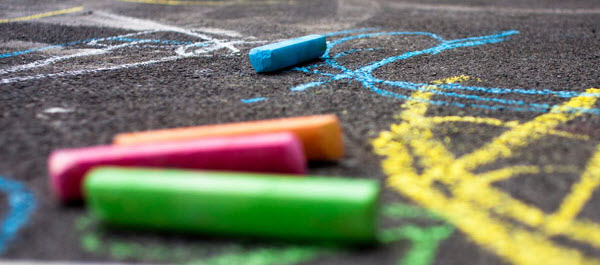I remember walking my daughter into her pre-school class. It was the usual early morning chaos. There was a large group of the three and four year olds as the classroom teachers start to stagger in. This particular morning, I had my infant daughter with me. One little three year old boy stops playing with his blocks and looks up at me. Then looks at my two daughters — then back at me. He asks, “Why is YOUR face brown, and HER face brown and HER face brown?” I pause, in shock, and look at the teacher. Within seconds, I replied, “Because this is the way God made us.” He shrugs and proceeds to play with his blocks, as if nothing happened. Meanwhile, I look down at my big girl and she is looking a bit puzzled about all of it. Then off she went to hang up her jacket.
I left her that morning thinking, “What was going through my baby girl’s mind?” “Did I answer that in the very best way I could being put on the spot like that?” As well as a host of other questions. Being a minority in our neighborhood, schools, and community is nothing new to my family. I just never know, as parent, what to say to my babies whenever things like this happen. Nor do I know what they are faced with, being that minority most of the time. My mother hen instincts always have me in protector mode, but I can’t be with them all the time. So I’m prayerful that they are not being mistreated, but they can’t help but be judged. The good thing is as [younger] children, they are still innocent, unassuming and by default color-blind.
So, what are we doing as parents to teach diversity? Are we doing our best to prep our kids at home, so that they don’t ask strangers why they have brown faces? I tend to think that my brood is exposed to a plethora of people from varying backgrounds. Actually, three of my daughter’s favorite friends are ALL born from parents of different nationalities – India, Mexico, and China to be exact. I love this about the community in which we live. Quite honestly, it wasn’t until a couple of years ago that my oldest was confronted about his race and called a racial slur. Once again, he didn’t see what the big deal was and completely brushed off the entire incident. It was then that I decided to be more open about people’s differences and did my best to answer all the “why’s” and “how comes”.
Being a brown girl from the South, and from a different generation than my kids, I wear the burden of my not-so-remote civil rights’ history on my mind and don’t take for granted that we live in a time an space that is different from that of our parents and grandparents. Yet, for some generations, it’s still the same. Generation after generation, perpetually breeding hate and prejudice–polluting our world and clogging up the flow of love from heart to heart.
I don’t buy into the “I don’t see color”. Because I do. I see it and I appreciate our differences and hope to actually learn something from each and every one of them. I’m teaching my kids the same. I’m not mad at the little boy for asking us about our brown faces. I just think it’s the responsibility of the parent to talk to their kids. I hope that they teach them love and tolerance as well. I’m just proud that my little chocolate drop feels good about her beautiful brown face…her thick hair…and her full lips. I tell her everyday how beautiful these things are and how much I love about her. I can tell that she’s confident – and I love it!
BMWK — How do you respond to questions from children about race and color?

Leave a Reply